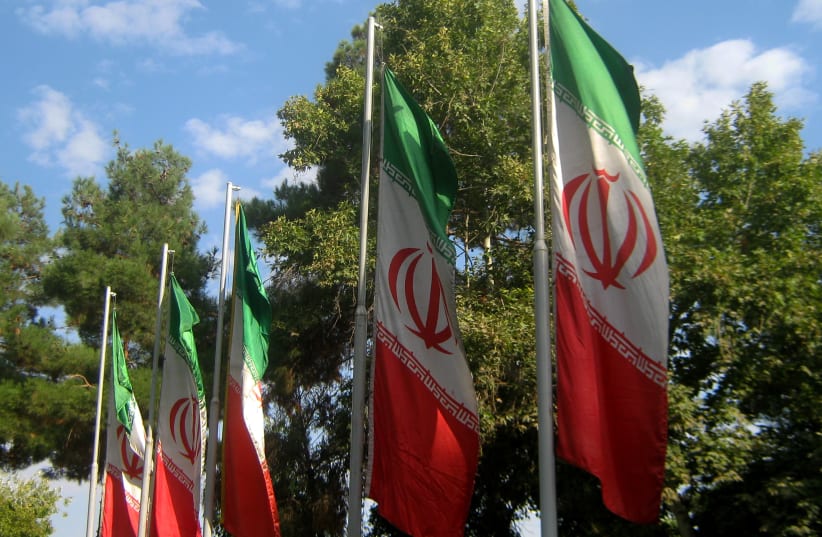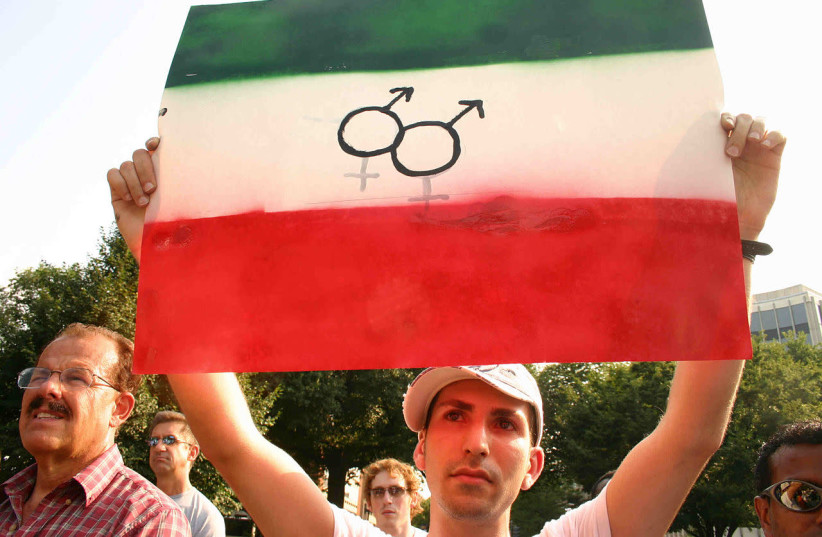Iran executed ten people on Wednesday, including a gay man, in Karaj, the capital of the Alborz Province, just outside of Tehran.
News organization Human Rights Activists News Agency (HRANA) reported on Thursday about the latest wave of executions in the Islamic Republic.
According to HRANA, the identities of two of the executed people, Iman Safari Rad and Mehdi Khalgoldi, have been verified by HRANA. Iman Safavi Rad had previously been sentenced to death on charges of "sodomy" and Mehdi Khalgoldi on charges of "rape.”
According to experts, Iran’s regime frequently uses the charge of sodomy to impose the death penalty on gays and lesbians.
Speaking from Germany, Dr. Kazem Moussavi, an Iranian dissident who writes about the clerical regime’s human rights violations, told The Jerusalem Post that the mullah regime labels same-sex relations as sodomy and he believes Iman Safavi Rad was gay.
Moussavi tweeted on Thursday about the executions in Karaj and elsewhere in Iran and urged that the “German federal government must absolutely resist the execution machinery of the mullahs.”
He noted that the executions this week took place directly after the trip of the top EU foreign relations official Josep Borrell to Iran to discuss Tehran’s re-entry into the nuclear accord. Human rights issues are not part of the atomic negotiations.
Peter Tatchell, an LGBTQ+ and human-rights campaigner, told the Post on Thursday "Yet again another man has been executed on a charge of sodomy, which he may or may not have committed, with or without consent. What is certain is that this man almost certainly did not receive a fair trial under the notoriously biased Iranian judicial system. Defendants are routinely denied access to lawyers and defence witnesses. They can be sentenced after brief 'trials' lasting as little as 20 minutes, with lawyers provided only shortly before the court hearing starts. People can be found guilty without corroborating evidence. This execution is consistent with Iran's state policy of the death penalty for same-sex relations.
He added that "The world must make relations with Iran contingent on Tehran's observance of international human rights law, including a prohibition on the use of the death penalty in all circumstances and respect for the human rights of LGBTs, women, non-believers and religious and ethnic minorities."
According to a 2008 British WikiLeaks diplomatic cable, Iran’s regime has executed between 4,000-6,000 gays and lesbians since the nation’s Islamic revolution in 1979.
Previous execution in January
The Post reported in January that the Islamic Republic continued its lethal homophobic policy, executing two men based on its anti-gay Sharia law system.
The two Iranian men, Mehrdad Karimpou and Farid Mohammadi were killed in the Maragheh prison in northwestern Iran, according to the organization Human Rights Network in Iran. The men were arrested six years ago.
Moussavi said that Khalgaldi was hanged on the charge of rape and the allegation was phrased in a" religious-judicial term that suggests Khagaldi is also presumably homosexual. The regime conceals executions of homosexuals to prevent international protests." He continued that"In 1981, before the massacre of thousands of political prisoners in 1988, the regime hanged countless opponents of the regime, including minors, in prisons. The regime is currently very weak internally and must further intensify executions to intimidate society."
Moussavi urged Germany "to stop the nuclear talks and close the embassy and consulates of the mullahs as long as exeuctions are not stopped in Iran."
"The international community must impose Magnitsky sanctions on the regime officials, judges and prison staff who authorized these executions - and on those responsible for the many other human rights cases of abuse in Iran, including the hanging of peaceful Kurdish, Baluch and Ahwazi Arab activists on fake terrorism charges,"
Peter Tatchell

